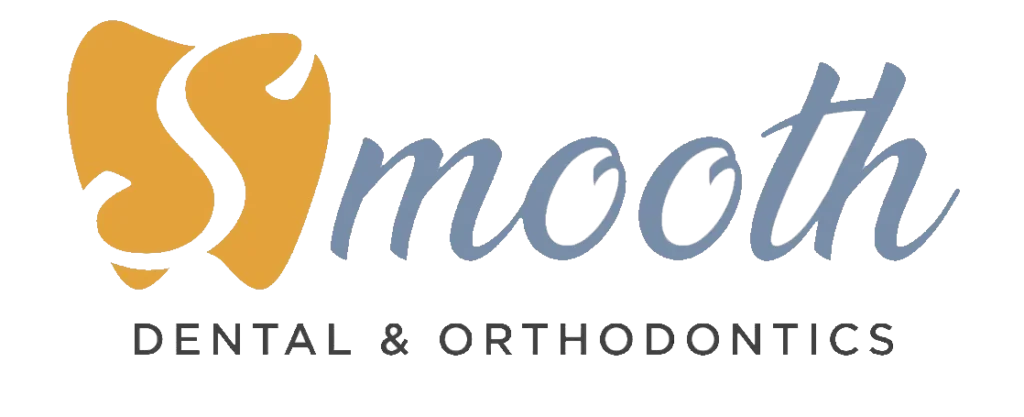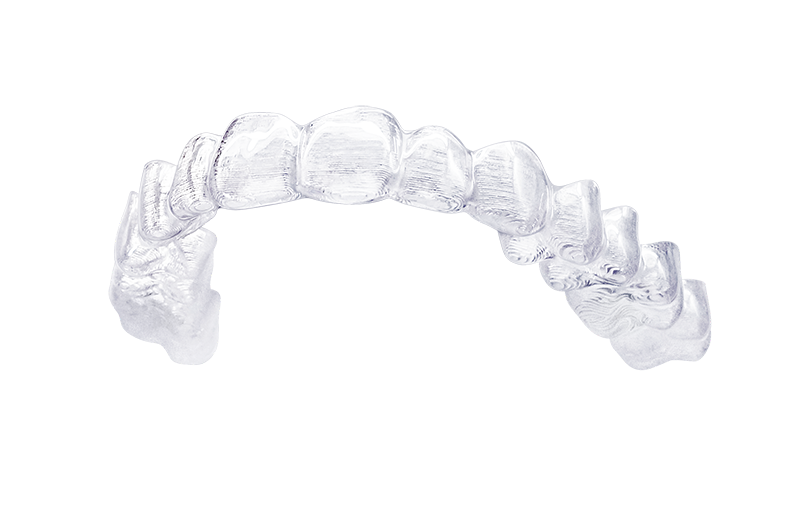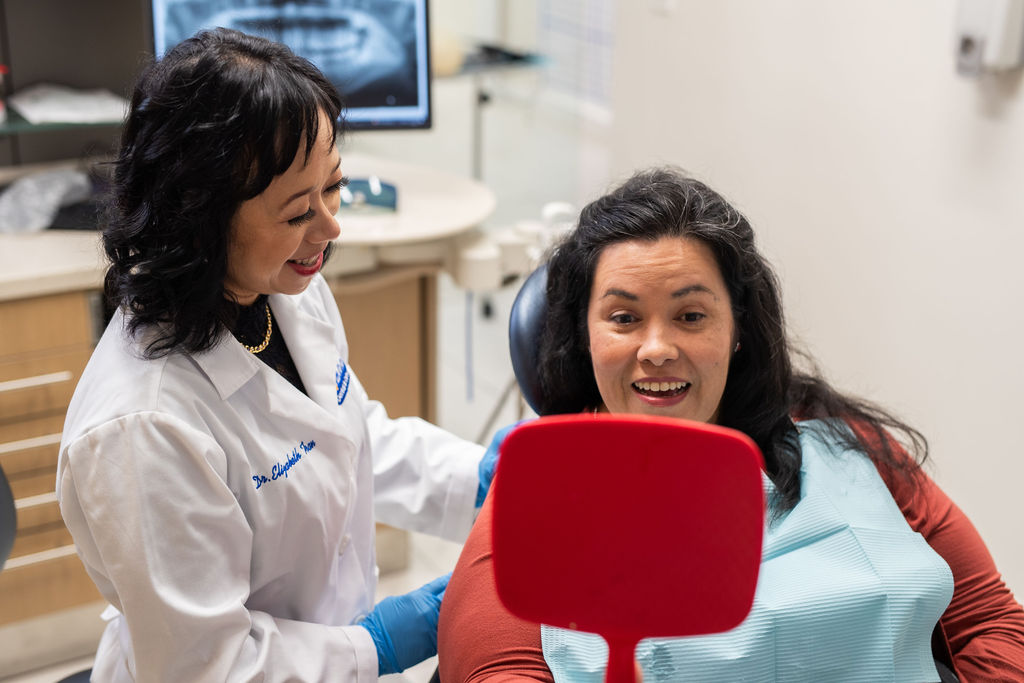
Introducing
TMJ Treatment
in Santa Ana, CA
TMJ treatment refers to the management and care provided for temporomandibular joint (TMJ) disorders, which affect the jaw joint and surrounding muscles.
Bone Grafting | Santa Ana, CA.
How Are These Disorders Treated?
- Conservative Treatments: Lifestyle changes, jaw exercises, physical therapy, and stress management techniques to alleviate symptoms.
- Medications: Pain relievers, muscle relaxants, and anti-inflammatory drugs to reduce pain and inflammation associated with TMJ disorders.
- Oral Appliances: Splints, mouthguards, or bite guards to alleviate jaw pain and prevent teeth grinding or clenching.
- Dental Treatments: Orthodontic adjustments, dental restorations, or occlusal adjustments to correct underlying dental issues contributing to TMJ disorders.
- Injections: Corticosteroids or botulinum toxin (Botox) injections to relieve muscle tension and reduce pain associated with TMJ disorders.
- Surgery: Arthrocentesis, arthroscopy, or open joint surgery to repair or replace damaged joint structures in severe cases unresponsive to conservative treatments.
When Might I Need a TMJ Treatment
Chronic Jaw Pain
Persistent jaw pain can indicate a TMJ disorder, requiring professional evaluation and treatment to alleviate discomfort.
Clicking Or Popping Sounds
If you hear clicking or popping sounds when opening or closing your mouth, TMJ treatment may be necessary to address joint dysfunction.
Limited Jaw Movement
Difficulty or pain when moving your jaw can hinder daily activities like eating and speaking, signaling the need for TMJ intervention.
Frequent Headaches
TMJ disorders can cause tension headaches or migraines, and treating the TMJ issue can help reduce or eliminate these headaches.
Teeth Grinding (Bruxism)
Grinding or clenching your teeth, especially at night, can strain the jaw muscles and joints, making TMJ treatment essential.
Ear Pain Or Ringing
Ear pain or tinnitus without an ear infection can be related to TMJ problems, and treating the TMJ disorder can relieve these symptoms.
TMJ Treatment
What Causes TMJ Disorders?
• Jaw Injury: Trauma or injury to the jaw joint, such as a blow to the face or whiplash injury, can lead to TMJ disorders.
• Teeth Grinding or Clenching (Bruxism): Habitual grinding or clenching of teeth, especially during sleep, can strain the jaw muscles and contribute to TMJ symptoms.
• Misalignment of the Teeth or Jaw: Malocclusion (misalignment of the teeth) or improper bite alignment can place undue stress on the TMJ, leading to dysfunction and pain.
• Arthritis: Various forms of arthritis, such as osteoarthritis or rheumatoid arthritis, can affect the TMJ and contribute to inflammation, pain, and joint deterioration.
• Stress: Emotional stress or anxiety can cause muscle tension and jaw clenching, exacerbating TMJ symptoms.
• Poor Posture: Poor posture, particularly in the neck and upper back, can affect the alignment of the jaw and contribute to TMJ dysfunction.
• Hormonal Changes: Hormonal fluctuations, such as those occurring during pregnancy or menopause, can affect the TMJ and contribute to symptoms.
• Dental Procedures: Prolonged dental treatments or procedures that require prolonged opening of the mouth can strain the jaw muscles and contribute to TMJ symptoms.
• Other Factors: Certain habits or behaviors, such as chewing gum excessively, biting on hard objects, or poor nutrition, may also contribute to TMJ disorders.
It’s important to note that TMJ disorders can have a complex and multifactorial etiology, and individual cases may involve a combination of these factors. Seeking evaluation and treatment from a healthcare professional, such as a dentist or oral surgeon, can help determine the underlying causes of TMJ disorders and develop an appropriate treatment plan.
DIAGNOSIS
How Is TMJ Diagnosed?
TMJ disorders can often be diagnosed and treated by dentists, particularly those with training and experience in treating conditions related to the temporomandibular joint (TMJ). A definitive diagnosis may require a comprehensive evaluation, which can include:
Clinical Examination: A dentist will thoroughly examine the jaw joint, muscles, and surrounding tissues for signs of dysfunction like pain, tenderness, clicking, limited motion, and spasms.
Medical History: Detailed medical history helps identify factors contributing to TMJ disorders, including past jaw injuries, teeth grinding, arthritis, stress, or other conditions.
Diagnostic Imaging: X-rays, panoramic radiographs, or MRIs may be used to evaluate the TMJ’s structure and condition.
Functional Assessment: Tests assess jaw alignment, range of motion, and function during activities like opening the mouth, chewing, and speaking.
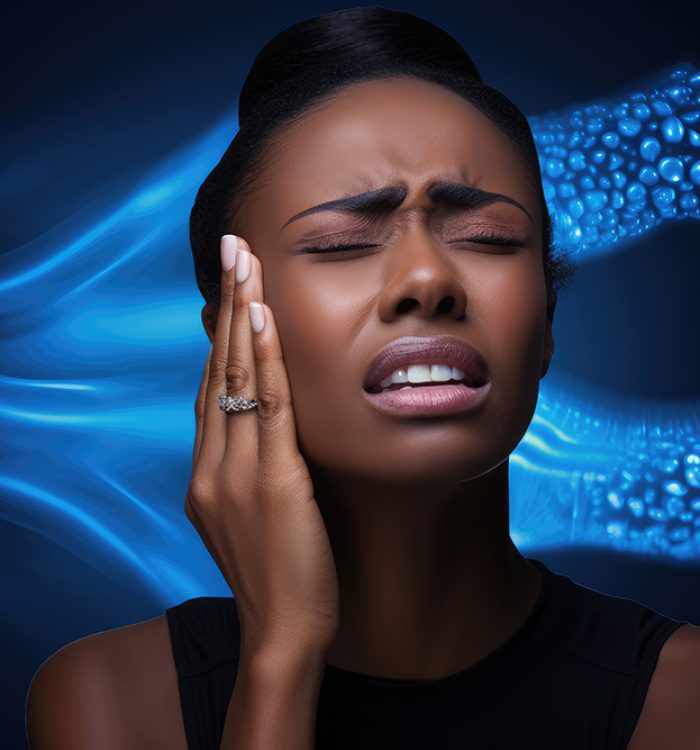


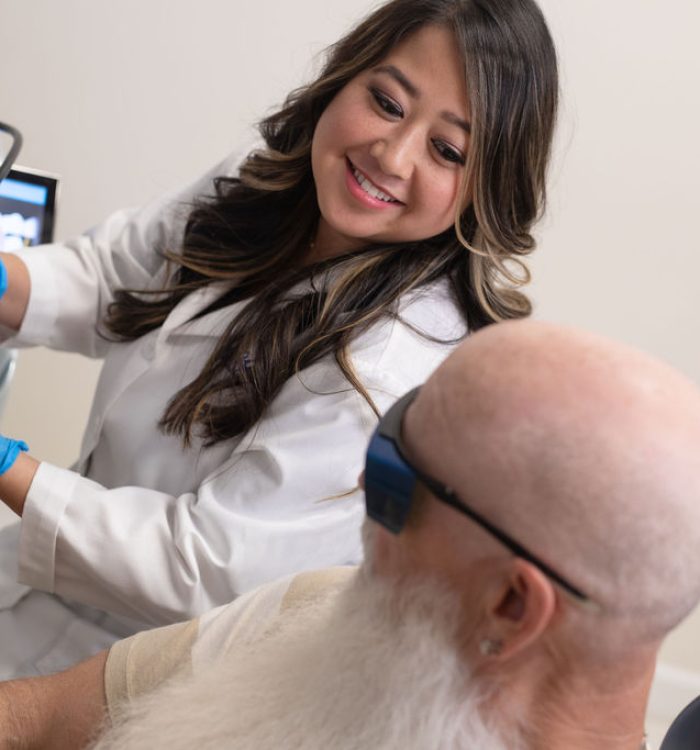





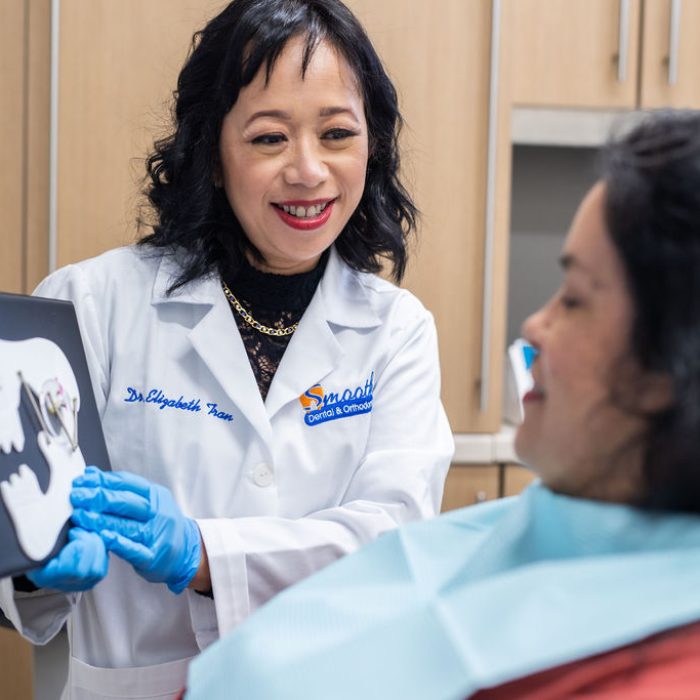


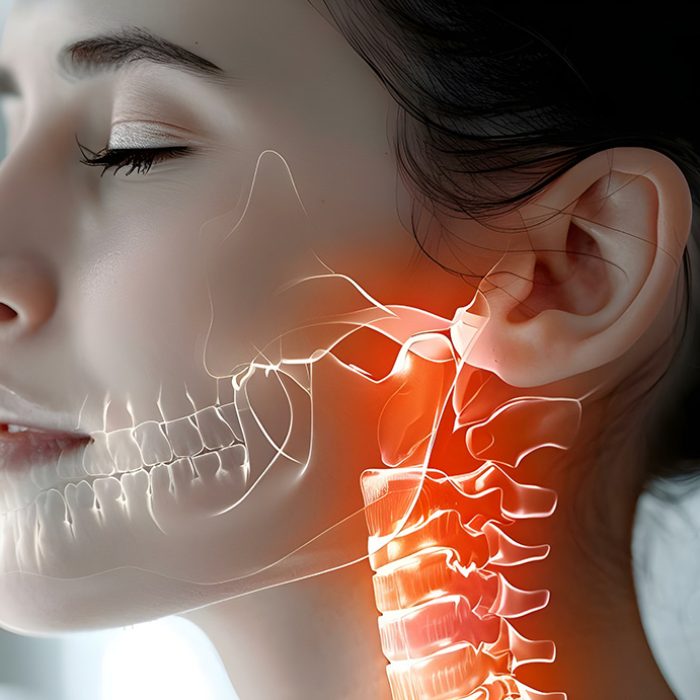
MORE
About TMJ Diagnosis
While dentists are often the primary healthcare providers involved in diagnosing and treating TMJ disorders, collaboration with other healthcare professionals, such as oral surgeons, orthodontists, physical therapists, or primary care physicians, may be necessary in complex cases or when additional evaluation or treatment modalities are required. It’s important to seek evaluation and treatment from a qualified healthcare provider experienced in managing TMJ disorders to ensure an accurate diagnosis and appropriate management plan tailored to your specific needs.
Did you know?
Fun Fact About TMJ Treatment
Did you know that custom-made dental appliances like night guards can significantly reduce TMJ symptoms? These devices prevent teeth grinding and clenching during sleep, which helps to alleviate jaw pain and discomfort, allowing for a more restful night’s sleep and healthier jaw function.



